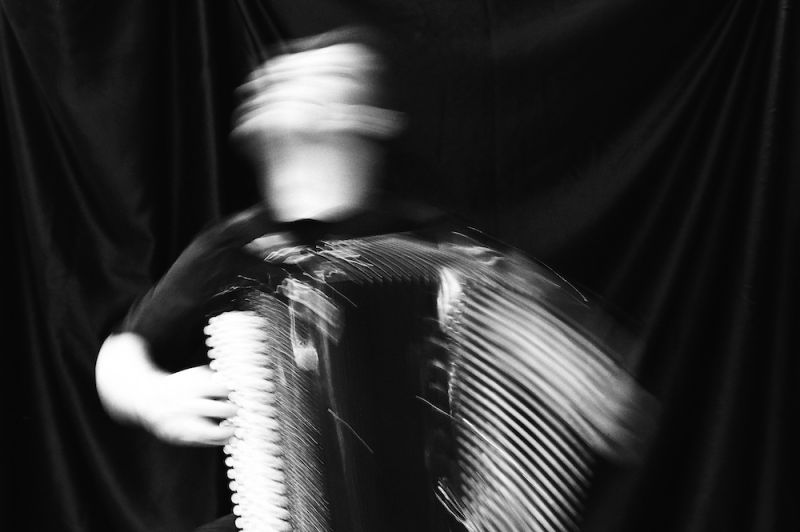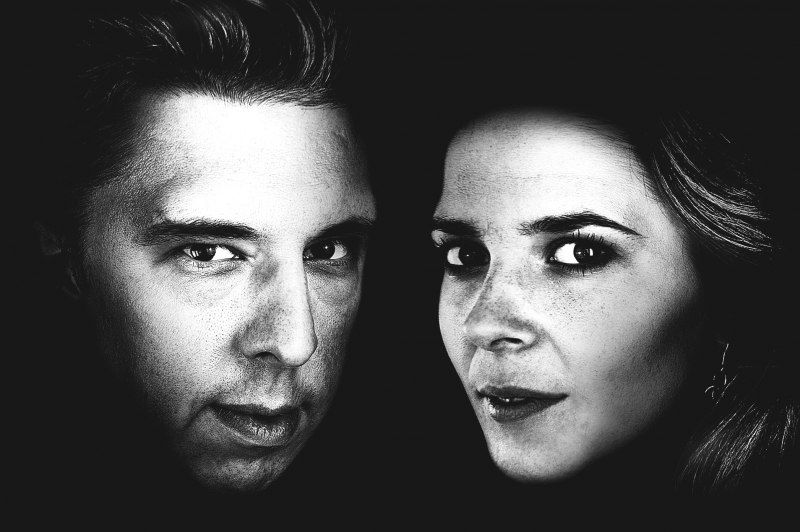[] [] [] Special guests: Stanislav Yudin & Asnate Rancane [] [] []
[] [] [] Limited amount of unnumbered seats on sale [] [] []
Mario Batkovic is a Swiss virtuoso solo accordion player born in Bosnia. His playing can be challenging and experimental, yet it maintains a masterfully beautiful quality. He scratches every nuance out of the instrument, integrating scratches and clicks into the arrangements and making a feature of the kind of tonal scars and birthmarks which are usually eradicated from recordings and live performances.
At times the playing sounds like low end distorted feedback, at other times like an obscure analogue synthesiser. But the common thread running throughout is the quality in the writing and arrangement, and Batkovic's mastery of this instrument.
Through the accordion, he’s been able to channel an unbound desire to explore and express, a freedom that he has been denied through the various physical, social, cultural, and political borders that have existed in his life.
His music criss-crosses between classical and contemporary, often featuring many classical cadences and harmonies, yet is also interlaced with less conventional sounds by using the instrument percussively and draws from minimalism.
When Geoff Barrow (Portishead) was introduced to Batkovic’s music, he immediately realised both its musical and technical proficiencies, as well as its sheer uniqueness. Batkovic was subsequently invited to support Beak on their 2015 tour and then signed to his record label Invada Records.
Geoff began working with Batkovic in the studio, encouraging him to write in new ways and opening doors for new musical directions. And the finished product, is a manifestation of this. The album is encompassing in its moods and sounds, for example drawing on a restlessness and urgency that can be found in the album’s opening track Quatere, yet delivering something entirely polarized in the following piece, Gravis, a long-arching ballad that canters mournfully into the mist. It’s often hard to pinpoint any clear styles, and Batkovic refuses to be pigeonholed. Restrictus is at times a collision of Philip Glass and Vivaldi, while a few bass-lines could easily feature in a Mozart sonata; other passages are cinematic and others tense and dramatic – all in one track. Inuente opens with just the clicking sounds of the mechanical buttons, while Batkovic teases out quiet subtleties in the tonal production. He makes full use of the accordion as a distinctive, expressive sound world, yet transmutes its melancholic character in imaginative ways – such as in Eloquens and Semper, or the yearning album closer Somnium.
“The album doesn’t want to submit itself to anything other than its sound. That’s the essence. Absolute submission to the sound. I’m the slave of the tones”
Batkovic presents a holism in his music that draws on the full capabilities of the instrument. This is reflected in quite a staggering range of pitch, volume and timbre that the instrument is able to produce, something that Batkovic exposes gloriously for the first time ever. However there are also subtleties in the production of the album that also make it a technical and aesthetic triumph. Batkovic wanted to translate the true sound of the accordion for the audience, in terms of representing exactly the way it sounds to him while he’s performing. It took over a year to solve the problems regarding the audio engineering of the album, but this now means that the stereo image opens up a whole new sonic spatiality, immersing the listener in a vivid and intricate sound-space.
“I wanted all of the instruments breathing, air noises and the sounds of flapping of claps to be audible. So the handicaps of the accordion can be transformed into benefits, creating a new sound”













